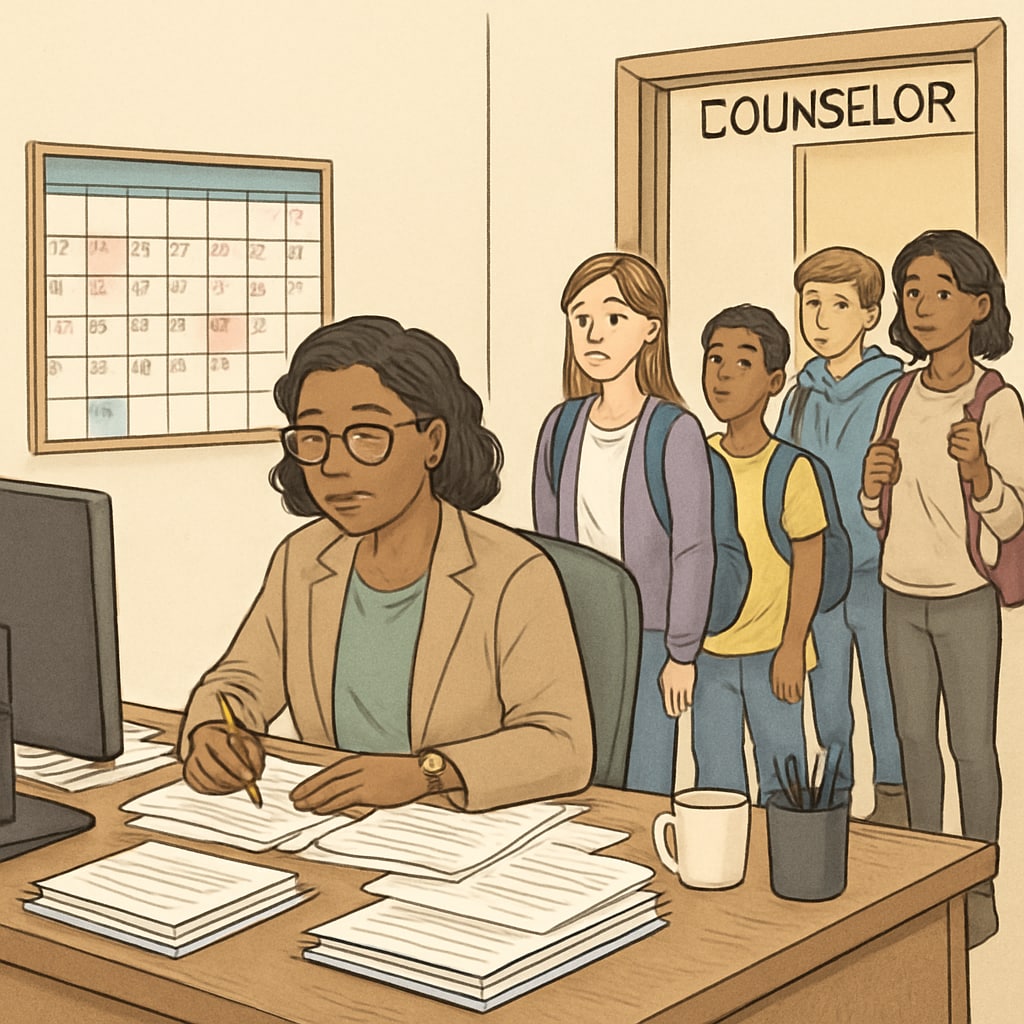Completing assignments that require interviews with school counselors can be a daunting task for graduate students. Whether due to time constraints, limited access to professionals, or unclear communication channels, the process often leaves students feeling frustrated. This article examines the common challenges faced by graduate students in such scenarios, delves into the structural reasons behind these issues, and provides actionable strategies to help bridge the gap between academia and K-12 counseling professionals.

Understanding the Challenges of Interviewing School Counselors
Graduate students pursuing education-related degrees often encounter assignments that require interviewing school counselors to gain insights into their professional experiences and perspectives. However, securing such interviews is not always straightforward. Some of the most common challenges include:
- Limited Availability: School counselors juggle numerous responsibilities, from student advising to administrative tasks, leaving them with little time to engage in interviews.
- Gatekeeping: Many schools have policies that require administrative approval before external communication with staff, creating additional barriers for students.
- Unclear Communication: Graduate students may struggle to craft professional and compelling outreach emails, reducing their chances of receiving a response.
These obstacles can discourage students and impact the quality of their assignments. However, understanding the root causes of these challenges is the first step toward finding effective solutions.
The Structural Causes Behind Interview Barriers
Several structural factors contribute to the difficulties graduate students face when attempting to interview school counselors:
- Overburdened Professionals: According to the American School Counselor Association, the counselor-to-student ratio in many schools exceeds recommended levels. This workload leaves little room for additional commitments, such as interviews.
- Institutional Policies: Schools often prioritize student safety and privacy, which can limit external contact with staff members, even for academic purposes.
- Lack of Established Networks: Unlike corporate internships, academic programs may not always provide students with direct connections to professionals in the field, making independent outreach more challenging.
Recognizing these systemic barriers can help graduate students adopt a more strategic and empathetic approach when seeking interviews.

Practical Tips for Building Professional Connections
While the challenges are significant, they are not insurmountable. Graduate students can take the following steps to improve their chances of successfully connecting with school counselors:
- Do Your Homework: Research the school’s website and the counselor’s role before reaching out. Tailor your email to acknowledge their expertise and explain how the interview aligns with their work.
- Leverage Professional Networks: Use platforms like LinkedIn or seek introductions through professors and mentors who may have existing connections in the education sector.
- Be Flexible: Offer multiple time slots and be open to alternative formats, such as virtual interviews, to accommodate the counselor’s schedule.
- Provide Context: Clearly explain the purpose of the interview, the expected time commitment, and how the information will be used.
- Follow Up: If you don’t receive a response, send a polite follow-up email after a week. Avoid being pushy, but express your continued interest.
By taking these steps, students can demonstrate professionalism and respect, increasing the likelihood of a positive response.
Conclusion: Bridging the Gap
Interviewing school counselors is an invaluable opportunity for graduate students to gain practical insights into the K-12 education system. While challenges such as limited availability, institutional policies, and unclear communication can create barriers, understanding these obstacles and employing strategic outreach methods can lead to successful connections. By approaching the process with preparation, empathy, and flexibility, graduate students can not only complete their assignments but also foster meaningful professional relationships that may benefit their future careers.
Ultimately, bridging the academic and professional gap requires persistence and adaptability. Graduate students who invest in building these connections will find that the insights gained from school counselors are well worth the effort.
Readability guidance: This article uses short paragraphs, bullet points, and lists to enhance clarity. Transition words such as “however,” “in addition,” and “for example” are used to maintain a smooth flow. Passive voice and long sentences are minimized to improve readability.


